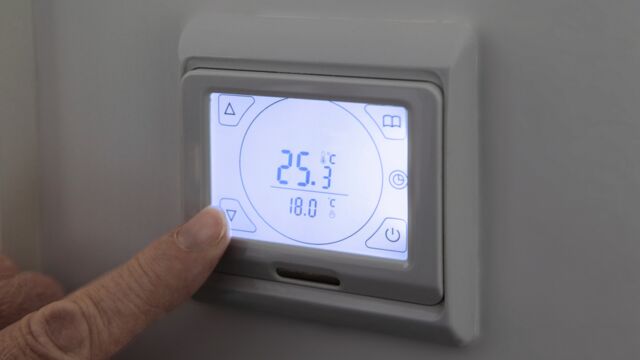Although some countries have managed to flatten the curve, it's safe to say that COVID-19 will very likely pose a threat to the world for many more months, if not years. And while we have reason to believe that warm summer weather will slow down the spread of the virus, we're all wondering: can air conditioning spread the disease?
Discover our latest podcast
An outbreak at a restaurant raises concerns
By now, we all know that the virus can be passed on from one person to another via respiratory droplets, but the study of an outbreak that occurred at the end of January, in an air-conditioned restaurant in Canton (Guangzhou), recently shed light on the possibility that air conditioning facilitated this particular outbreak.
Among the 83 people in the restaurant was a 63-year-old woman who, a few days later, tested positive for COVID-19. Fifteen days later, nine other customers fell ill too, but, strangely, none of the waiters did, even though they'd been in contact with the woman, and had touched her plate and cutlery...
Very interesting observational piece in @CDC_EIDjournal; a #covid19 outbreak from a restaurant; index case (first patient) was not symptomatic at the time; the infection pattern overlapped with the ventilation pattern of the air conditioning. https://t.co/5WdCJvobJ7pic.twitter.com/C45RtmCJHD
— Abraar Karan (@AbraarKaran) April 19, 2020
Even more intriguing: all the people who were contaminated that day were seated in the direction of the airflow coming from the AC, and passing through the table where the COVID-19 carrier was seated, according to the CDC's study. "We conclude that in this outbreak, droplet transmission was prompted by air-conditioned ventilation. The key factor for infection was the direction of the airflow."
Experts are divided
So, from the looks of it -- at least in this particular case -- air conditioning promoted the transmission of contaminated respiratory droplets from one table to the others. However, doctors and health professionals remain sceptical about this study's findings.
"You can see that there is less than a meter of distance between the patient at table A and the customers at table B, and droplets can travel up to 1.50 m," Jean-Christophe Lucet, a physician at the Bichat Hospital in Paris, explains to Franceinfo.
"For now, the only thing that has been scientifically proven with experimental evidence is that droplets can spread throughout a sick patient's room," Daniel Camus, an infectious disease specialist at the Institut Pasteur in Lille, told Ouest France. "Ventilation or air conditioning systems have not been found to pose a threat. Viral loads are probably too low."
Le Figaro, for its part, argues that well-used ventilation "dilutes the virus-laden droplets, which are then removed from the room." "When you have an air conditioning system that works and that does not put a host of pathogens in contact with the air circulating, it does not pose a problem," says Jean-Christophe Lucet.
Preventative measures and social distancing
So, in a nutshell: there's not yet any strong, scientific evidence to support the idea that coronavirus can be spread through air conditioning systems, but we'll still have to keep an eye on them in the coming months, especially once bars, cafés, restaurants, and other usually crowded spaces reopen. And when in doubt, make sure that you always follow preventative hygiene and social distancing measures.















